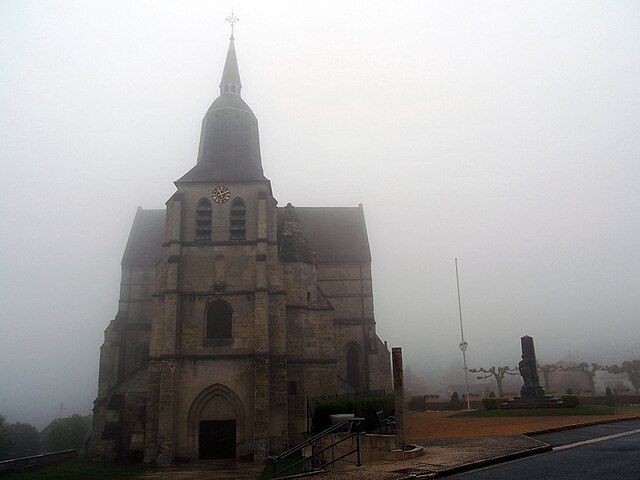Saint Gobain
From Wikipedia, the free encyclopedia
Saint Gobain (died 670), also known as Goban, was an Irish monk and spiritual student of Saint Fursey at Burgh Castle, Norfolk, England.
Saint Gobain | |
|---|---|
| Personal life | |
| Born | |
| Died | 670 |
| Cause of death | marauders (brother) |
| Resting place | buried in his oratory |
| Nationality | Irish |
| Other names | Goban |
| Relatives | brother of Saint Wasnon |
| Religious life | |
| Religion | Christianity |
| Senior posting | |
| Based in | Burgh Castle Norfolk, England and France |
| Disciple of | Saint Fursey |

Born in Ireland, he was a brother of Saint Wasnon, (to whom a church is dedicated in Condé-sur-l'Escaut). Gobain accompanied Fursey to France. Some accounts have him staying at the Abbey of Saint Vincent in Picardy,[1] or the abbey of Corbény in Champagne,[2] before settling in a hermitage in the forest of Voas, near the present Saint-Gobain. There he brought forth a spring by thrusting his pilgrim's staff into the ground.
In 670, Gobain was beheaded by marauders, and buried in his oratory, which became a place of pilgrimage. His feast day is observed on 20 June.
References
External links
Wikiwand - on
Seamless Wikipedia browsing. On steroids.
